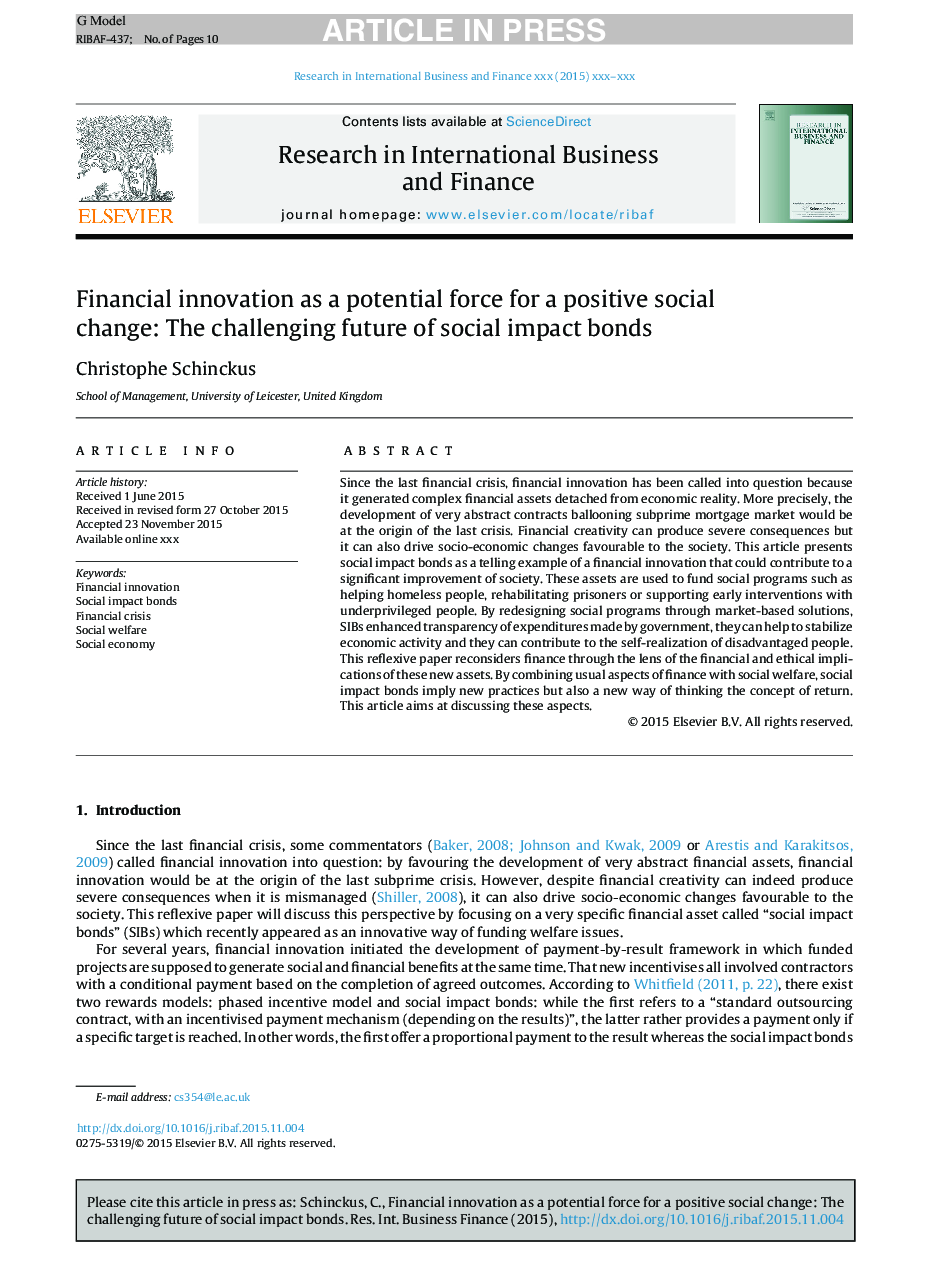| Article ID | Journal | Published Year | Pages | File Type |
|---|---|---|---|---|
| 5107428 | Research in International Business and Finance | 2017 | 10 Pages |
Abstract
Since the last financial crisis, financial innovation has been called into question because it generated complex financial assets detached from economic reality. More precisely, the development of very abstract contracts ballooning subprime mortgage market would be at the origin of the last crisis. Financial creativity can produce severe consequences but it can also drive socio-economic changes favourable to the society. This article presents social impact bonds as a telling example of a financial innovation that could contribute to a significant improvement of society. These assets are used to fund social programs such as helping homeless people, rehabilitating prisoners or supporting early interventions with underprivileged people. By redesigning social programs through market-based solutions, SIBs enhanced transparency of expenditures made by government, they can help to stabilize economic activity and they can contribute to the self-realization of disadvantaged people. This reflexive paper reconsiders finance through the lens of the financial and ethical implications of these new assets. By combining usual aspects of finance with social welfare, social impact bonds imply new practices but also a new way of thinking the concept of return. This article aims at discussing these aspects.
Related Topics
Social Sciences and Humanities
Business, Management and Accounting
Business and International Management
Authors
Christophe Schinckus,
